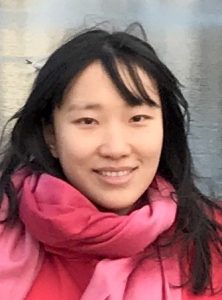
Congrats to Ke Fang, assistant professor of physics, WIPAC faculty member, and HAWC spokesperson, on earning an NSF CAREER award! CAREER awards are NSF’s most prestigious awards in support of early-career faculty who have the potential to serve as academic role models in research and education and to lead advances in the mission of their department or organization.
Fang’s award is sponsored by the NSF Windows on the Universe: Multimessenger Astrophysics program. In multimessenger astrophysics, scientists search for multiple high energy signals to identify their sources and learn more about the makeup of our universe. WIPAC hosts both the IceCube neutrino telescope and the HAWC gamma ray telescope, and Fang says she is excited to have access to high-quality data from both. In her NSF proposal, she plans to use that data in two ways.
“One is evolving novel data analysis techniques to study the problems that remain outstanding, such as the source of high-energy neutrinos,” Fang says. “The second part is once we have these data analysis results, then we’ll use numerical simulations to understand our observations.”
In addition to an innovative research component, NSF proposals require that the research has broader societal impacts, such as working toward greater inclusion in STEM or increasing public understanding of science. Once again, Fang finds herself well-positioned at WIPAC, where the outreach team has developed Master Classes, a one-day event where high school students come to WIPAC, spend time with scientists, and learn about topics not typically covered in high school physics class. Currently, the students learn about IceCube’s instrumentation and how to analyze the complex detector data.
“The course is already well designed, but from my perspective, I use a lot of numerical simulation in my research, so one thing I proposed to do is that I would design a module that would incorporate some of these modern numerical study techniques into the master class,” Fang says. “The students will now learn how to study physics using supercomputers, using numerical simulations.”